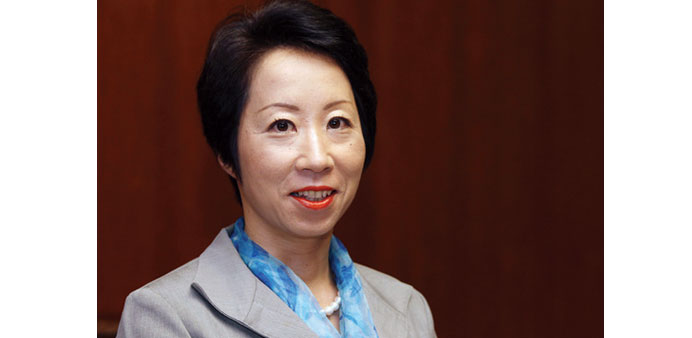Shirai: Inflation will hit the BoJ’s 2% target by around June 2017.
Reuters
Matsue, Japan
Bank of Japan board member Sayuri Shirai said the central bank can hold off on expanding stimulus to reach its inflation target as robust consumption makes firms more confident about raising prices, and will help offset the drag caused by weak oil prices.
Shirai, considered to be one of the more pessimistic of the nine members on the board on the outlook for the economy, said the central bank may consider easing policy if the uptrend in inflation expected by the BoJ fails to materialise “at all.”
Shirai said she personally expects inflation to hit the BoJ’s 2% target by around June 2017, three months later than the central bank board’s official forecast.
But, she said, the BoJ did not need to respond to the delay with additional easing because it is blamed largely on renewed falls in energy prices.
Meantime, falling energy costs will give companies more room to raise wages, allowing households to boost spending, she said, giving the BoJ room to hold off on additional stimulus.
“Some households are gradually feeling the benefits of higher wages,” Shirai told reporters after meeting with business leaders in Matsue, western Japan, yesterday.
Business confidence is holding up and companies are becoming more keen to raise prices as households become more accepting of higher prices, underpinning the economic recovery, she said.
Trying to hit the inflation target quickly could backfire by dampening household spending, as Japanese consumers became sensitive to price hikes during nearly two decades of deflation, she said.
“The BoJ must achieve its price target with speed. But it also needs to be mindful of the burden households feel when wages aren’t rising enough to make up for the rising cost of living,” Shirai said.
Her views contrast with those of BoJ governor Haruhiko Kuroda and his two deputy governors, who argue that setting a timeframe for the target is necessary to show the bank’s determination of eradicating deflation.
Kuroda has said the BoJ won’t abandon its pledge to hit 2% inflation “in roughly two years,” even though inflation is sliding once again, nearly three years into that commitment.
Several other BoJ policymakers besides Shirai have also advocated making the time-frame for achieving the inflation target more flexible.
Other policymakers, including Kuroda and his deputies, believe a more rigid time frame is needed in order to judge the success of the BoJ’s radical stimulus programme.
The BoJ has stood pat on policy since expanding its massive stimulus programme in October last year, even as consumer prices slide on renewed declines in energy costs and weak exports push the economy into recession.

